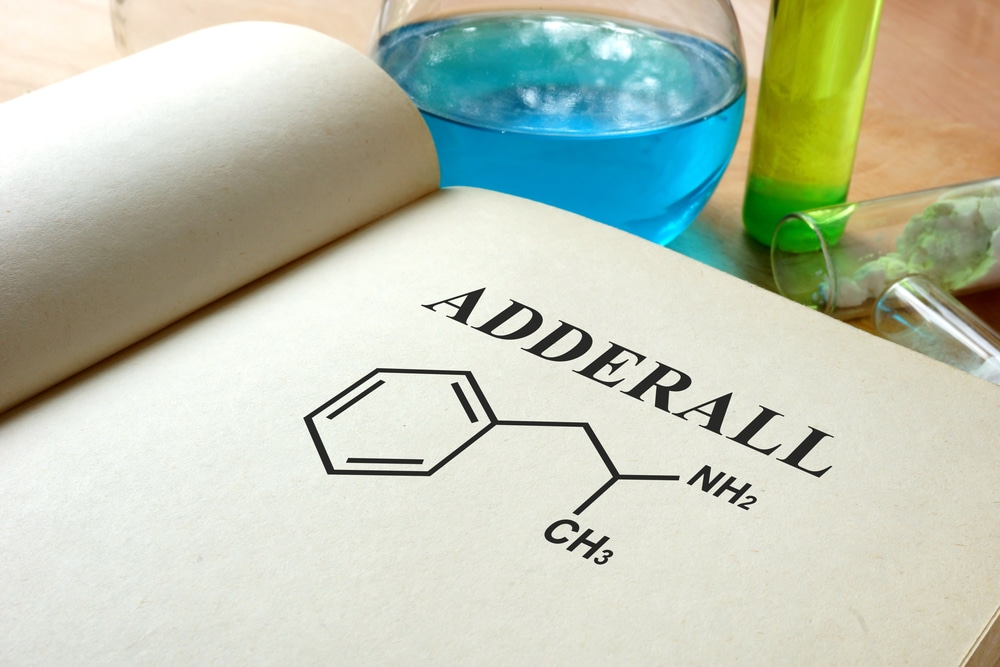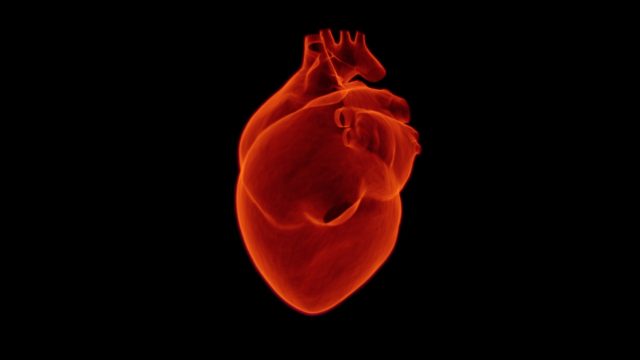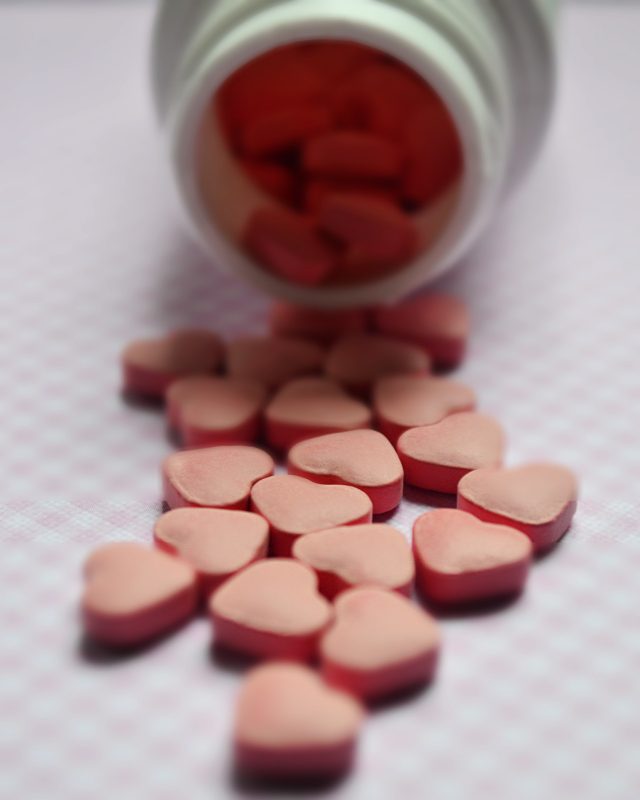

Stimulants like Adderall increase body temperature, blood pressure, and heart rate. When used for a prolonged period, especially in high doses, they can damage the heart and cardiovascular system.
The most common medical issues arising from Adderall use are high blood pressure and tachycardia, as published in the National Institute of Health. But a 2017 study reveals that those who abuse stimulant drugs, like Adderall, show signs of premature aging in their cardiovascular system.
It is natural for physiological processes to fail after years of working hard. However, stimulant abuse tends to compound and expedite this process. Experts believe that stimulant and drugs like Adderall disrupt the normal stem cell-functioning and cell division which can lead to serious heart problems.
When tachycardia – a heart rate over 100 beats per minute – develops, one may encounter a range of complications. They may have blood clots, heart failure and even sudden death. There are numerous types of tachycardia, but the most common one is atrial fibrillation. Atrial fibrillation is a rapid heart rate that arises from irregular, chaotic electrical impulses in the atria. These signals cause quick, uncoordinated, weak contractions of the upper chambers of the heart.

Stimulant drugs, like Adderall can cause the heart to work harder and pump faster than it needs to. This can lead to serious negative health consequences.
When the heart beats too fast, it may not supply enough blood to other parts of the body. This may starve tissues and organs of nutrients and oxygen and lead to the following symptoms:
Adderall is a prescription drug that treats narcolepsy and Attention Deficit Hyperactivity Disorder (ADHD). It's a blend of two drugs: amphetamine and dextroamphetamine and is the number one treatment option for ADHD. Adderall enhances focus and attention and reduces impulsive behaviors. Studies show that 75% to 80% of children with ADHD will notice a positive change in symptoms using stimulants like Adderall. In fact, Adderall is considered part of a complete treatment program.
In addition to ADHD and narcolepsy, Adderall can be used for Attention Deficit Disorder and bipolar disorder. Although the drug isn't approved by the FDA to treat bipolar disorder, it may be prescribed off-label during depressive episodes to increase energy and lift the mood.

Like any other type of prescription drug, Adderall can be abused.
Most ADHD stimulant medications, like Ritalin, Adderall, and Adderall XR, fall into the Schedule II category. They are legal but considered dangerous due to their high risk of dependence and abuse. Like with other stimulants, one can abuse and develop a dependence on Adderall. Research indicates that a growing number of people without ADHD are using Adderall illegally.
Experts believe that ADHD happens because of signal problems in the brain. So, the Adderall stimulates parts of the brains (mainly the prefrontal cortex) to receive more signals. The prefrontal cortex controls thoughts and behavior. When an average person (a person without ADHD) takes this medication, they get more activity in the prefrontal cortex. This increases their metabolism and concentration and makes them more alert.
People – especially those in college – abuse Adderall to perform better at work or school, or to feel more focused and alert. Students use it as a smart drug to combat the pressures of higher education. Others use it because it creates a feeling of euphoria. When Adderall is injected or snorted, it can cause a "high" that resembles cocaine. This may, in turn, result in physical and psychological dependence on these drugs.

Many college students use Adderall without a prescription. They feel it helps them meet the high demands of their academic life on campus.
When taken as directed by a doctor, there's little risk of addiction. But when used recreationally for the "high," the risk of Adderall abuse increases. Like other drugs of abuse, stopping Adderall may cause withdrawal symptoms. Those who quit after using high doses for a while may experience depression, fatigue, and tiredness.
So, in the case of addiction and dependence issues, one should find help through an addiction treatment facility. Addiction centers have experts and processes in place to help patients gain control and live a clean, healthy life.
Adderall has a profound effect on the cardiovascular system since it serves as a central nervous system stimulant. It increases heart rate, breathing, and blood pressure and lessens appetite. Although it's effective at making one feel alert, energetic, cheerful, and confident, and less tired or bored, the drug is linked to a range of negative side effects.
Adderall use can cause changes relating to sexual performance and sex drive. Its use is often linked to feelings of irritability, restlessness, and anxiety.
Long term side effects of heavy Adderall use include dizziness, dry mouth, and weight loss, and abdominal pain. Users may also experience blood clots, breathing issues, heart muscle weakness, suicidal thoughts, heart palpitations, atrial fibrillation, and heart diseases. An allergic reaction to the drug may cause swelling of the face, throat, or tongue.
High doses of Adderall over a few days can trigger paranoia, hallucinations, and panic. But this subsides as soon as the drug is cleared from the system. According to Molecular Psychiatry, panic attacks and anxiety tend to occur after long-term use or withdrawal. The intense "upper" effect is especially dangerous to those who have blood pressure or heart problems.

The use of stimulants can actually accelerate the aging process and wreak havoc to your physical and mental health.
Stimulant drugs wreak absolute havoc on the body, particularly the heart. According to the study, these drugs speed up a user's cardiovascular system's aging process compared to the rest of the population. A team of researchers at the University of Western Australia published their findings on February 9, 2017, in the online Journal of Asia.
The study sampled 713 participants in their 30s and 40s attending a clinic for drug abuse from 2006-2011. It measured the stiffness of the arteries of all participants using radial artery pulse tonometry. Arteries –blood vessels that supply oxygen to the heart – tend to harden with age.
Each participant was asked about their drug use and categorized into one of four groups. There were 483 nonsmokers, 107 tobacco smokers, 68 methadone users, and 55 amphetamine users in the four groups. Many amphetamine users had used it within the past week and more than 50% just the previous day.
Of all the four groups, the heart system of amphetamine users was aging faster than that of methadone users and smokers. This was both about their real chronological age and over time. The results stayed the same, even after considering other cardiovascular risk factors like cholesterol levels and weight.
Patients with a history of severe anxiety, agitation, glaucoma, or a personal or family history of Tourette syndrome or tics should not use Adderall. Those with severe heart problems or congenital heart defects should also not use stimulants because it might cause sudden death. Such patients should notify their doctors about any history of heart rhythm disorder, heart disease, heart attacks, coronary artery disease, mental health disorder, high blood pressure, and seizure disorders.